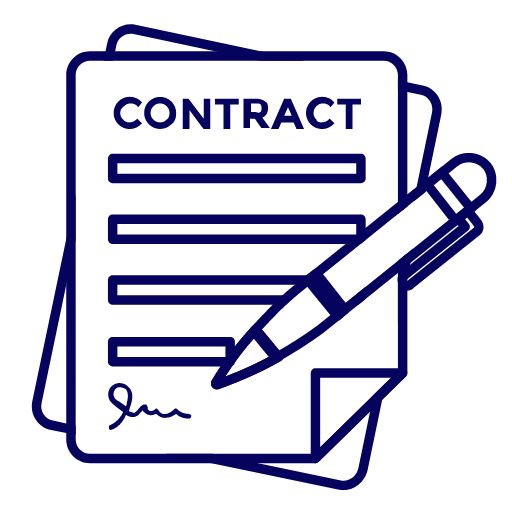Selecting the Right Attorney
There are approximately 1.3 million lawyers practicing in the United States. Many may be a good fit for your legal needs, but finding the right attorney requires identifying the nature and scope of the legal need, and locating an attorney with a matching skill set. The practice of law includes many different specialities and niche legal fields. Locating the right attorney is essential when you need competent and affordable legal support.

Identifying Your Legal Need
Businesses and individuals hire attorneys for many different reasons. For businesses, the attorney search may begin to locate an attorney well suited to address ongoing legal demands or the search may be for an attorney to address a signle specific issue. For individuals, the search for an attorney often starts with a specific legal need.
The first step in locating the right attorney is to identify your need. You must indentify your need to know where and how to search for the right attorney. Otherwise, you will end contacting attorney offices who are either unable to assist or not the best fit to address your needs.
Examples of Reasons you may need an attorney
Issue: My business is not large enough for a full time general counsel, but needs ongoing legal support.
Solution: You may want to search for someone who can serve as outside general counsel or fractional general counsel.
Issue: I want to franchise by business.
Solution: You should search for a franchise attorney who represents franchisors.
Issue: I have been sued by a neighbor for violation of an easement.
Solution: You may want to search for an attorney who (i) litigation attorney and (ii) is familiar with property and real estate laws.
Indentify the Practice Area
Its important to find an attorney with the right skill set for your specific legal needs. Therefore, it is helpful to identify the correct practice area before conducting your search. Whether you need an attorney with generalized or specialized knowledge will depend on the scope and breadth of your legal needs.
The law is often complex and attorneys cannot maintain expertise in all areas of the law. For example, the best M&A attorney in the world is likely poorly suited to provide advice on the distribution of marital property in a divorce. This may be a clear example, but many people do not fully appreciate that attorneys cannot handle every task. Of course, many attorneys will practice is various general practice areas and may have expertise within niche areas of that practice area.
Identifying the practice area will help you narrow your search.
Common General Practice Areas Include:
- Administrative Law
- Bankruptcy Law
- Cannabis & Marijuana Law
- Civil Litigation
- Civil Rights
- Corporate and Business Law
- Collections
- Criminal Law
- Elder Law
- Employment and Labor Law
- Environmental Law
- Estate Planning and Probate
- Family Law
- Healthcare Law
- Immigration Law
- Intellectual Property Law
- International Law
- Personal Injury Law
- Real Estate Law
- Sports and Entertainment Law
- Tax Law
This list is not exhaustive, but illustrates the point that attorneys can engage in many different practice areas. There are also often niche practice areas within a general practice area. Whether you need in attorney with specialized knowledge will depend on your legal need.
Niche Practice Areas
There are many niche or specialized practice areas. These niche areas often develop because specialized knowledge is needed. There may also be overlap between practice areas and niche specialities. For example, there are many specialized areas within the general practice of business law, including:
- Antitrust and Competition Law
- Art and Entertainment Law
- Data Privacy and Cybersecurity Law
- Environmental, Social, and Governance (ESG) Law
- Fashion and Luxury Law
- Food and Beverage Law
- Franchise Law
- Formation and Governance
- Healthcare Compliance
- International Trade Law
- Mergers and Acquisitions (M&A)
- Real Estate Finance
- Securities Law
- Sports Law
- Startups and Emerging Businesses
- Technology and Intellectual Property Law
- Transportation Law
There will often be overlap between general and niche practice areas as attorneys develop specialized knowledge in different practice areas and expand their practice, but this list is intended to highlight the scope and breadth of practice areas. The key when selecting an attorney is to understand the general scope of the attorneys knowledge and practice area, and then ensure the attorneys skill set aligns with your needs and budget.
Where to Search for an attorney
Once you identity the nature of your legal need, the next step is to know where to search. Many attorney-client relationships begin through a referral. Perhaps a business partner or friend has used a local attorney in a similar situation. The other popular option is to search online through search engines (Google, Bing, etc,) or through attorney specific directories, such as:
There are also private and public lawyer referral services. For instance, in Virginia you may wish to use the Virginia Lawyer Referral Service.
Narrowing Geographical Location
Attorneys are licensed to practice law on the state level. Traditionally, businesses and individuals looked locally for an attorney. However, with technological advances, its common for attorneys to represent clients remotely. The location of the attorney is most important if you have a litigation need. For transactional legal work, the attorney will often perform the legal service in their licensed state and communicate with clients remotely. The attorneys physical location is far less important than the skill set in many circumstances.
Professional Record
Attorneys are professionals who must maintain licenses issued through “Bar” associations in each state. These Bar Associations field complaints and conduct investigations into attorney misconduct. Records documenting findings of attorney misconduct are typically public records and they are available to search online. A serious disciplinary record could be a red flag.
Client Reviews and testimonials
Reviews by previous clients are often the best source of information. A lot can be gleamed from a consultation, but you likely are not the first client to engage the attorney you are considering. Reviews can provide insight into personality, communication style, or even results obtained. Google is often the most accessible and reliable source of reviews. You may also be able to locate client and peer reviews on platforms like Avvo or Justia.
The Attorneys education and Experience
The attorney’s education and experience is worth considering when searching for a new attorney. Are they well educated? Have they represented clients like you? Do they have industry knowledge? Have they obtained good results for clients? This information can often be located on the attorney directories listed above, search engines, on the law firm’s website, or on the state bar association’s website. Education and experience is certainly not the only factor you should consider, but we believe it is a factor worth considering. The attorney’s degree of experience could save you time and money on legal fees. It could also help you obtain a better result.
The Attorney consultation
Many attorneys will offer a free consultation, often remotely or in-person. You should take this opportunity to briefly explain your legal needs and see if the attorneys personality, skills, and style are a good fit. You should determine what is most important to you and find an attorney who aligns with your needs.
Determine The Attorneys Style during the consultation
Attorneys often have different approaches, practices, and perspectives, which are often influenced by the evolving legal landscape, technology, and changing societal norms. We like to think of attorneys as “old school” or “new school”, but the style is not dictated by the age or practice experience of the attorney. An attorney’s style may change over time or may adapt as needed to best serve clients.
Old School Attorneys
- Communication Style: Old school attorneys often prefer in-person communication and do not rely heavily on digital communication tools.
- Document Management: Old school attorneys typically are paper-centric and prefer physical case files, as opposed to digital documents.
- Traditional Methods: Old school attorneys may not adopt technology and often prefer to rely on traditional legal research methods.
- Traditional Billing: Old school attorneys tend to strictly adhere to the billable hour.
- Conservative Approach: Old school attorneys tend to have a more conservative approach to legal strategies and precedents.
New School Attorneys
- Communication Style: New school attorneys prefer digital tools for communication, client meetings, and collaboration. They embrace email, text messages, and video conferences.
- Document Management: New school attorneys prefer to store documents digitally, with minimal reliance on hardcopy files.
- Innovative Methods: New school attorneys are often tech savvy and are willing to be early adapters of digital tools for search, document management, and communication.
- Flexible Billing: New school attorneys are often more flexible on billing practices, with a willingness to take projects on a flat or fixed fee basis, or on an hourly basis.
- Adaptive Approach: New school attorneys are often willing to explore and adopt innovative legal strategies, such as alternative dispute resolution and creative problem solving.
Communication style (and frequency) is often one of the most important aspect of maintaining a positive attorney-client relationship. The attorney and client’s preferences and expectations need to align. Selecting an attorney should include an evaluation of the attorneys’ approach to doing business because compatibility and trust is essential.
Determine the attorneys personality during the consultation
Attorneys, like individuals in any profession, can exhibit a range of demeanor types based on their personality, communication style, and approach to their work. Effective attorneys can tailor their demeanor to best serve their clients and navigate the specific demands of each situation.
Demeanor types and characteristics are not mutually exclusive and often overlap, but you may consider:
- Is the attorney cool, calm, and collected or aggressive?
- Is the attorney assertive and confident?
- Is the attorney strategic and analytical?
- Is the attorney collaborative and diplomatic?
- Is the attorney client-centered?
- Is the attorney capable of adapting to each situation?
Determine the attorneys Accessibility during the consultation
During your search for a good attorney you should take steps to determine who frequently the attorney communicates with clients. Are they accessible when you need them? Will they provide a prompt response? Is timing important? You should ensure that your expectations and the attorneys accessibility match.
Determine the attorneys Fee Structure during the consultation
Attorney rates can vary drastically between practice areas and between firms. In our geographical area, attorneys seem to charge between $350/$500 an hour. Attorneys in large firms and big cities often charge two to three times as much. You should always ensure you know the attorneys fee structure and it aligns with your budget. If you are seeking an attorney for a single project, you may also want to ask for an estimated number of hours, a fixed fee, or a specific dollar cap on legal fees. Depending on the project, the attorney may be able to work with you to ensure the services are as affordable as possible. For example, we often serve franchisors and other businesses for a reasonable flat monthly fee and help franchisees consider franchise opportunities for a fixed fee. We are able to offer fixed fees when we have a reasonable expectation of the time investment required and in exchange for upfront payment we can discount our rate for these clients. Of course, the ability of an attorney to offer an alternative fee structure will vary based on the breadth and scope of your legal needs.
The Waldrop & Colvin Law Firm
We hope that the information in this blog post is helpful to you use when searching for a new attorney. We are Virginia licensed attorneys and our law firm excels at providing business and commercial legal support. Our practice includes most general areas of business law and extends into several specialized areas of law. For example, we business clients import, export, and distribute products and we help business owners franchise their business. If you think we may be a good fit to represent your business, please give us a call or schedule a free video consultation.
Meet the Author
Derek A. Colvin
Derek is a graduate of Penn State Law and Old Dominion University. He started his legal career in public service as a prosecuting attorney before entering private practice. He currently serves business clients as a partner at Waldrop & Colvin, the law department for your business.
Derek is laser-focused on delivering efficient and effective solutions for business legal needs. As a seasoned litigator set on thinking critically and communicating effectively, Derek is well-suited to advise and protect your business as an independent owner, franchisor, or franchisee.
Derek A. Colvin offers a free 15 minute consultation.
You can call or email Derek Colvin directly or you can schedule a video conference today!




